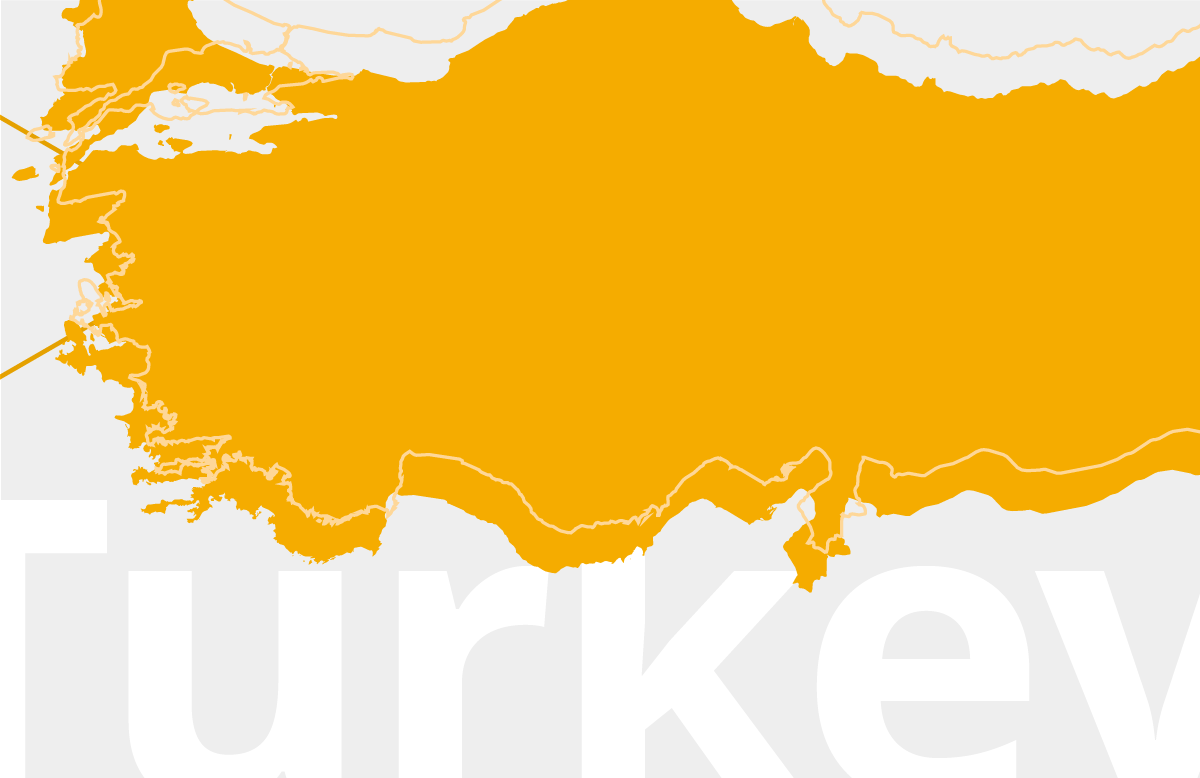From Türkiye to Luxembourg
Meet Bora Tastan, researcher at the Luxembourg Centre for Systems Biomedicine at the University of Luxembourg, former Scientific Exchange Grantee and current EMBO Postdoctoral Fellow
Facts and figures, life scientists in Turkey, EMBO opportunities
Meet Bora Tastan, researcher at the Luxembourg Centre for Systems Biomedicine at the University of Luxembourg, former Scientific Exchange Grantee and current EMBO Postdoctoral Fellow
Life scientists and their institutions respond to the disaster by sharing offers of assistance in Europe and beyond


Turkey joined the EMBC as a member state in 1993. Life scientists in Turkey are eligible for all EMBO Programmes supporting life scientists in Europe and beyond.
Turkey has more than eight million students enrolled across more than 200 higher education institutions1. Median age of Turkey’s 83.6 million people is 33 years2. Turkey’s Council of Higher Education oversees higher education institutions in Turkey1. The past two decades have seen a significant expansion of dedicated departments and centers for molecular life science research within the university system3.
The Scientific and Technological Research Council of Turkey (TÜBİTAK) is the primary funder of research in the country. Publicly funded grant, exchange, and scholarship programmes promote a wide range of activities4. These include research, technology transfer, and university-industry collaborations4. There is also support for international mobility, including fellowships for established and young international researchers. Under Horizon 2020, Turkey had a strong participation in European Research Council (ERC) and Marie Skłodowska-Curie Actions (MSCA) programmes5. The country scores favorably on key innovation measures such as creative outputs6, job-to-job mobility of human resources in science and technology7, and government support for business R&D7. The proportion of innovative firms in Turkey has also increased substantially during the past two decades2. In 2019 Turkey averaged 550 new startups each year2.
In 2020, gross expenditure on R&D in Turkey was 1.09% of GDP8. Business enterprise financed 49.4% of GERD expenditure, the Turkish government 33.6%, 3.5% was funded from abroad, while 13.5% was provided by other national funding sources9. Turkey has set out ambitious plans to increase its national research and innovation capacity. The country aims to increase GERD expenditure to 1.8% of GDP by 202310. It also plans to increase the number of high-tech products, drive international collaborations, and build more human resources11.
Population: 83.6 million1
R&D spending: 1.09 % of GDP8
Total researchers: 243,77312
Researchers per 1,000 employed: 4.812
Patents: 37213
Number of higher education institutes: 206 with more than 8 million students in total1
Horizon 2020 funding:
1,189 organizations and 201 SMEs involved in H2020 projects14
25 ERC Principal Investigators14
186 Marie Skłodowska-Curie Actions funded researchers14
All life scientists in Turkey are eligible for the EMBO Programmes supporting life scientists in Europe and beyond.
Find out about all EMBO funding schemes here.
All information as of December 2021.
Meet Bora Tastan, researcher at the Luxembourg Centre for Systems Biomedicine at the University of Luxembourg, former Scientific Exchange Grantee and current EMBO Postdoctoral Fellow
Life scientists and their institutions respond to the disaster by sharing offers of assistance in Europe and beyond